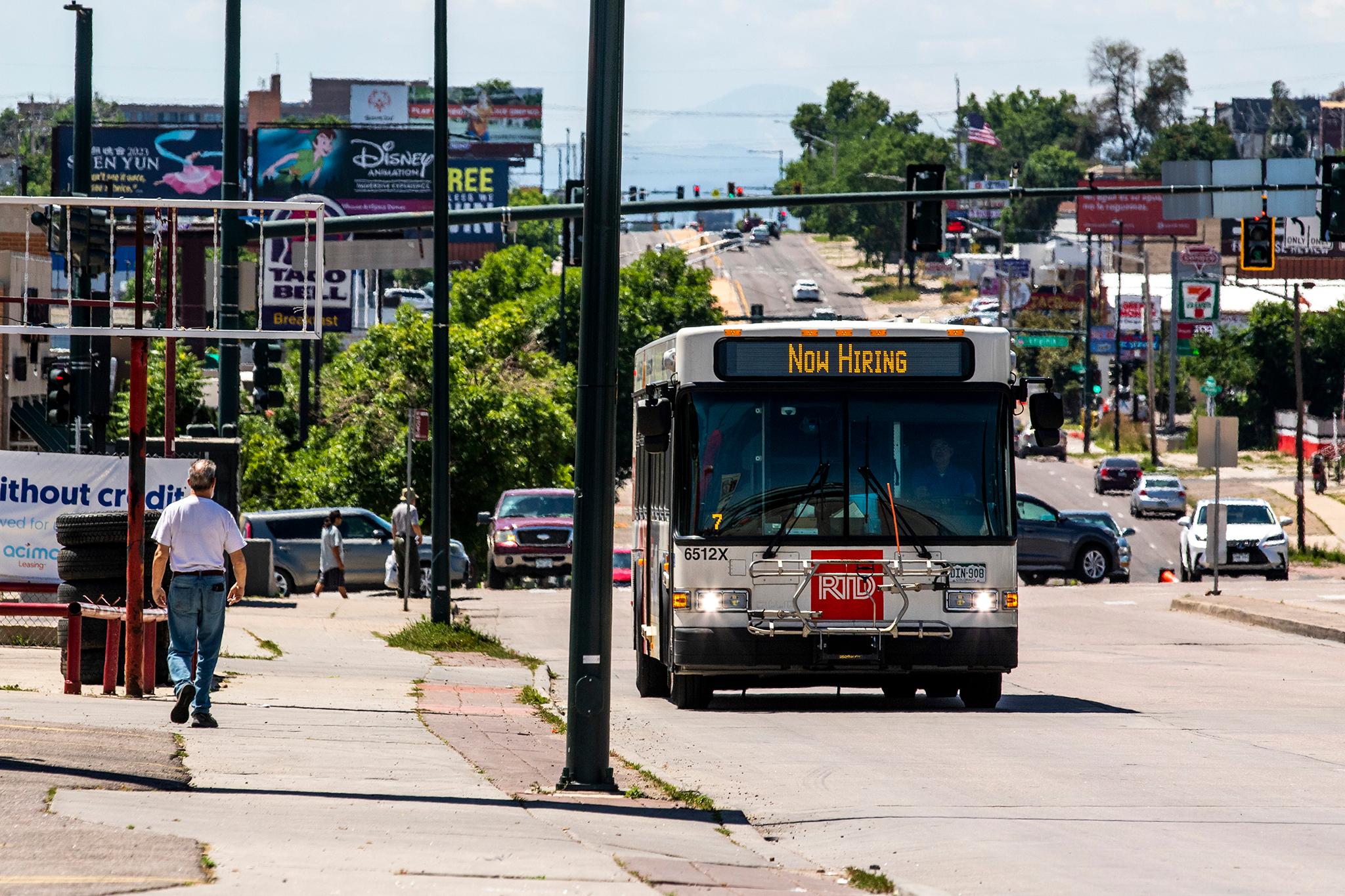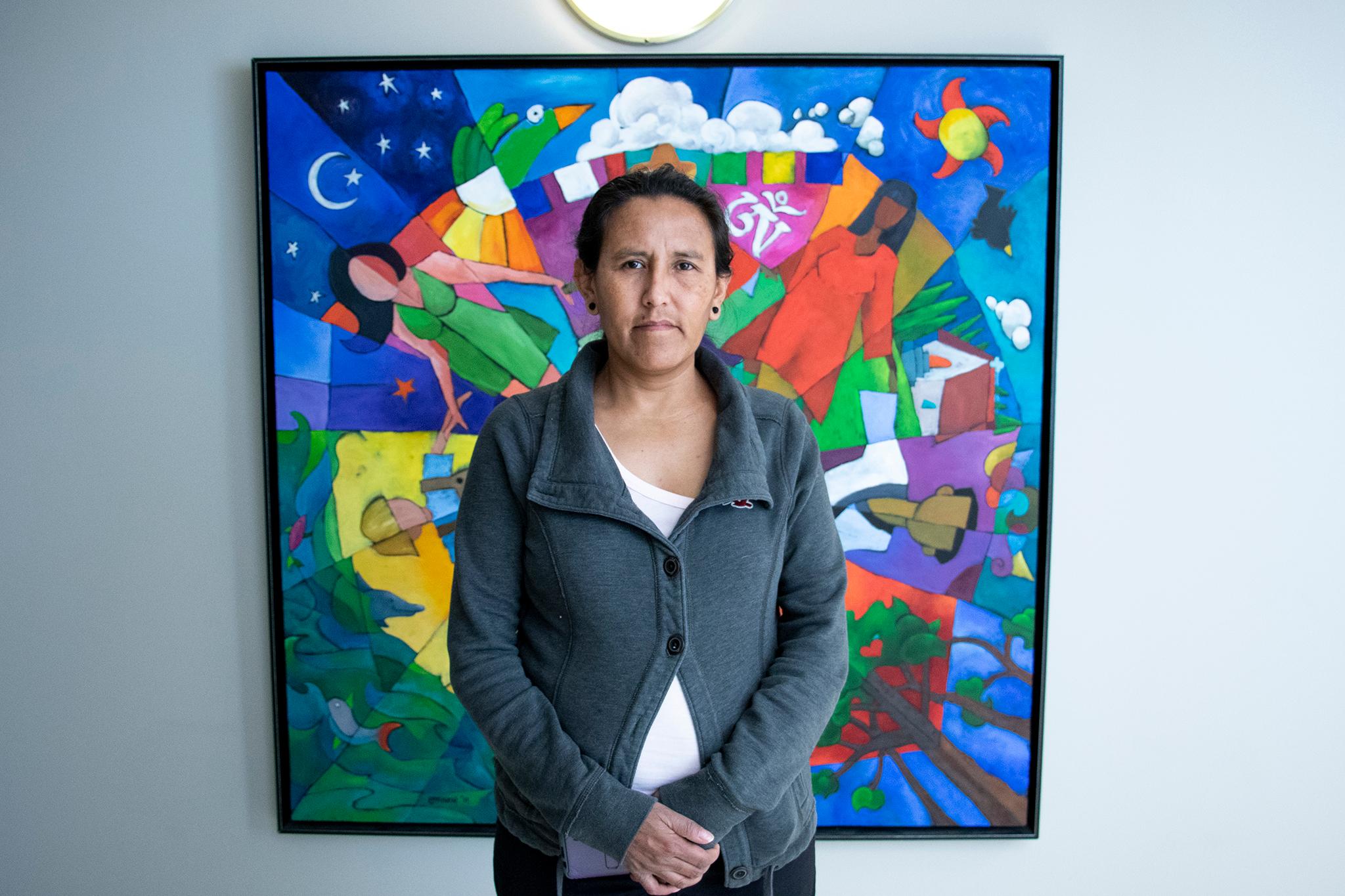
The Regional Transportation District and its largest union, which represents about 1,900 bus and train operators, mechanics and other frontline workers, are struggling to finalize a new contract.
The last collective bargaining agreement expired Dec. 31. And while officials with RTD and the Amalgamated Transit Union Local 1001 both say they’ve agreed to continue operating under that old deal, the union is now ramping up public pressure on RTD’s management and board of directors to get a new deal done as negotiations continue.
“We are the front line of RTD. We are the face of RTD,” bus driver Frankale Christian told the RTD board on Tuesday evening. She was one of more than 100 frontline workers who packed the meeting.
The main sticking point is pay, said union chapter president Lance Longenbohn. After a big raise in 2022, bus drivers and mechanics now start at about $26 and $33 an hour respectively. But wages will need to keep climbing significantly to attract a workforce that will have to deal with challenging working conditions, years of high inflation and the high cost of living in the Denver metro, he said.
“Denver needs transit, transit needs labor, and we're here doing the job,” Longenbohn said in an interview. “We just feel like it's time to compensate us for the work that we do.”
In a statement, RTD spokesperson Tina Jaquez said “the agency looks forward to continuing its longstanding and productive relationship with the ATU in support of RTD’s valued employees.”
“The agency is committed to ensuring all RTD employees are fairly and competitively compensated in a manner that also supports the agency’s long-term fiscal sustainability,” she wrote.
RTD and the union both declined to detail their own wage proposals to CPR News. But the union says RTD has offered annual wage increases of 5%, 4.5% and 4.5% over the next three years. Collectively those are much smaller than the 24 percent raise over three years the two sides agreed on in 2022.
Reaching a new deal will be crucial for RTD as it continues its year-long effort to add staff so it can boost service in coming years.
The union wanted to address, but not disrupt, the board.
Only three frontline workers spoke to the board on Tuesday night. Longenbohn instead quickly summarized the challenging working conditions they face, including drug use and other dangerous behavior by passengers, lack of time to use the bathroom, and wages that have some living “paycheck to paycheck.”
“Your highly skilled workforce is still here waiting for you to honor your statement of appreciation by taking action,” he said to applause, referencing the board’s monthly routine of thanking its frontline workers.
Two board members thanked the workers.
“I listen and I appreciate everything our frontline staff do for us every single day,” board member JoyAnn Ruscha said.
Longenbohn said the union is waiting for a response from RTD management after its public statements Tuesday evening. The union is not considering a strike, he said.
“Our members really don’t want to be disruptive,” he said. “They have a sense of duty every day when they’re driving their bus.”
The board also elected new leaders for itself on Tuesday.
Julien Bouquet of Parker, whom voters re-elected last November, is the new RTD board chair.
"We have a lot of work to do. But I'm very optimistic about the future of this agency,” Bouquet said at Tuesday’s meeting.
Three of the seven new members of the 15-member board were also voted into leadership roles: Patrick O’Keefe of the southern suburbs is the first vice chair; Karen Benker of Longmont is the new treasurer, and Chris Nicholson of downtown Denver is the new secretary.
Troy Whitmore, who has served on the board since 2018, is the second vice chair.
All of the board leadership votes were unanimous except for one: the board chose Nicholson for secretary over Michael Guzman, who also represents Denver and served as secretary last year.
Several of the new board members have said they want more transparency and accountability from RTD’s leadership team, and a greater focus on increasing ridership. Board members will also likely be busy at the state Capitol this session as key legislators have said they intend to take another crack at an RTD reform bill.









